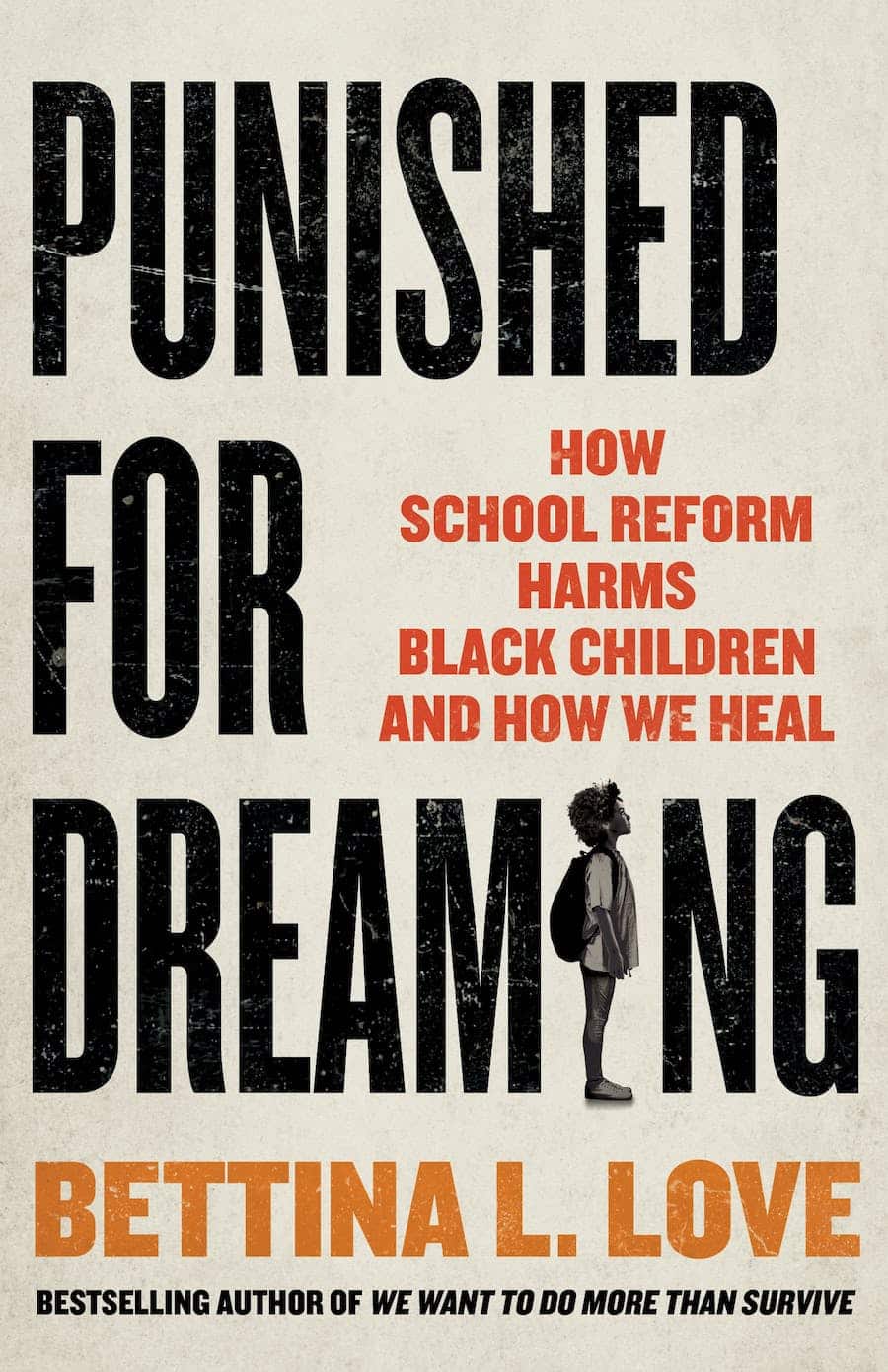In Punished for Dreaming: How School Reform Harms Black Children and How We Heal, Dr. Bettina L. Love lays out the case for educational reparations through a thorough analysis and scathing critique of how educational reform from the Reagan administration to today has harmed Black children. Dr. Love always writes and speaks from a place of Black joy and strong abolitionist tone. She deftly navigates several areas where Black Americans have been Punished for Dreaming: showing how racist policies persist in housing, policing, education funding, teacher population, and the law itself. Dr. Love makes a solid case that these policies are punishing Black Americans and need to be reformed or re-written altogether.
Through her use of anecdotal interviews with colleagues and friends, and her ample research into education reform, Dr. Love has written a fast-paced, engaging nonfiction book that enrages, inspires, informs, and dreams of a more equitable system of education in the United States.
READ: Pennsylvania Takes Valuable Steps Forward To Help Teachers Create Anti-Racist Classrooms
One of the key takeaways that Dr. Love often makes in her writings and speeches is that “the time is past due” for action as it relates to education reform for Black Americans. This sentiment is echoed strongly in the foreword of the book:
“This book offers not only a critique of reform but a way forward. A way to a more just world for all children–and a nation finally ready to commit to ending harm and starting the long process of educational justice.” (pg. 13)
The book’s first few chapters lay out a compelling argument of how anti-Blackness and anti-Black policies were established (and continue on today) in public schools. Most individuals focus on the 1950s and 1960s when they speak about segregation, and Love touches on those major points. But she also expands that thread, sharing how the 1970s and 1980s led to about “21,500 black teachers being displaced because of new requirements for teacher education programs.” (pg. 22) She outlines the inequity in school funding, the carceral nature of many schools, and the predatory practices of private school charters. These three issues alone resonated with me deeply as Pennsylvania has recently found itself mired in a debate about school funding and whether or not budgets should include money for private schools. Ultimately, the governor vetoed the $100 million that was scheduled for private schools, but there still is work that needs to be done in order to equitably fund schools in PA.
READ: Pennsylvania’s School Funding Scheme Creates A Permanent Underclass. That May Be The Point
In the middle section of the book, she outlines how White philanthropy found in organizations like Teach For America and Knowledge is Power (KIPP) don’t go far enough in education reform and how standardized testing is draining the life and creativity from many school settings already hindered by inequitable and inhabitable learning environments. In some of the boldest and courageous of chapters, she closes the book with a solid case for Educational Reparations based on statistical analysis and through research. Working together with economists and scholars, they “determined that Black folx are collectively owed $56 billion for surviving the last forty years of experimental school reform.” (pg. 270) Her writing is fearless and passionate in her defense of Black folx and always seeks to lift up and celebrate their enduring spirit.
Some of the strongest sections of the book for me were the chapters designated to commentary about White folx and their attempts to reform or “save” Black schools and Black children. She boldly states, “Black people don’t need saving. We need the removal of the institutional barriers that prevent, stop and aim to kill Black progress.” She does not stop there. She implores White folx to shift from “allies” to “co-conspirators” who are “willing to anchor their work of justice in the work of collective healing.” She shares the story of Bree Newsome and James Tyson. In 2015, Bree Newsome (who is Black) and James Tyson (who is White), worked together to remove the Confederate flag from the South Carolina statehouse. Newsome climbed the flagpole and Tyson’s job was to hold the pole in case the police attempted to use a taser on the metal pole. Tyson also helped Newsome as she climbed down and was “willing to use his intersections of privilege and power in support of Newsome and to confront racism.” (pg. 245) For Dr. Love, Black Americans do not need to be saved, they need to be seen and heard and White folx need to move from allies in identity to allies in action.
READ: The Culture Wars Are Wars of White Supremacy
Punished for Dreaming (on sale Sept. 12) is a powerful and important book. For years, politicians and districts have struggled to reform schools to be more equitable and effective. Dr. Love’s book cuts through all of the noise and proposes a bold and brave solution to the struggle. She advocates for the unabashed centering of Black voices in the reform process and ultimately, and rightly so, calls for the adequate funding needed to achieve that transformation. Every educator should read this book and think deeply on how they can join in the hopes and dreams of a more equitable society and future. We must all dream along with Dr. Love echoing her impassioned plea that: “Repair and transformation are the hope for the future, a future where Black folx are safe and where we all thrive together.”






